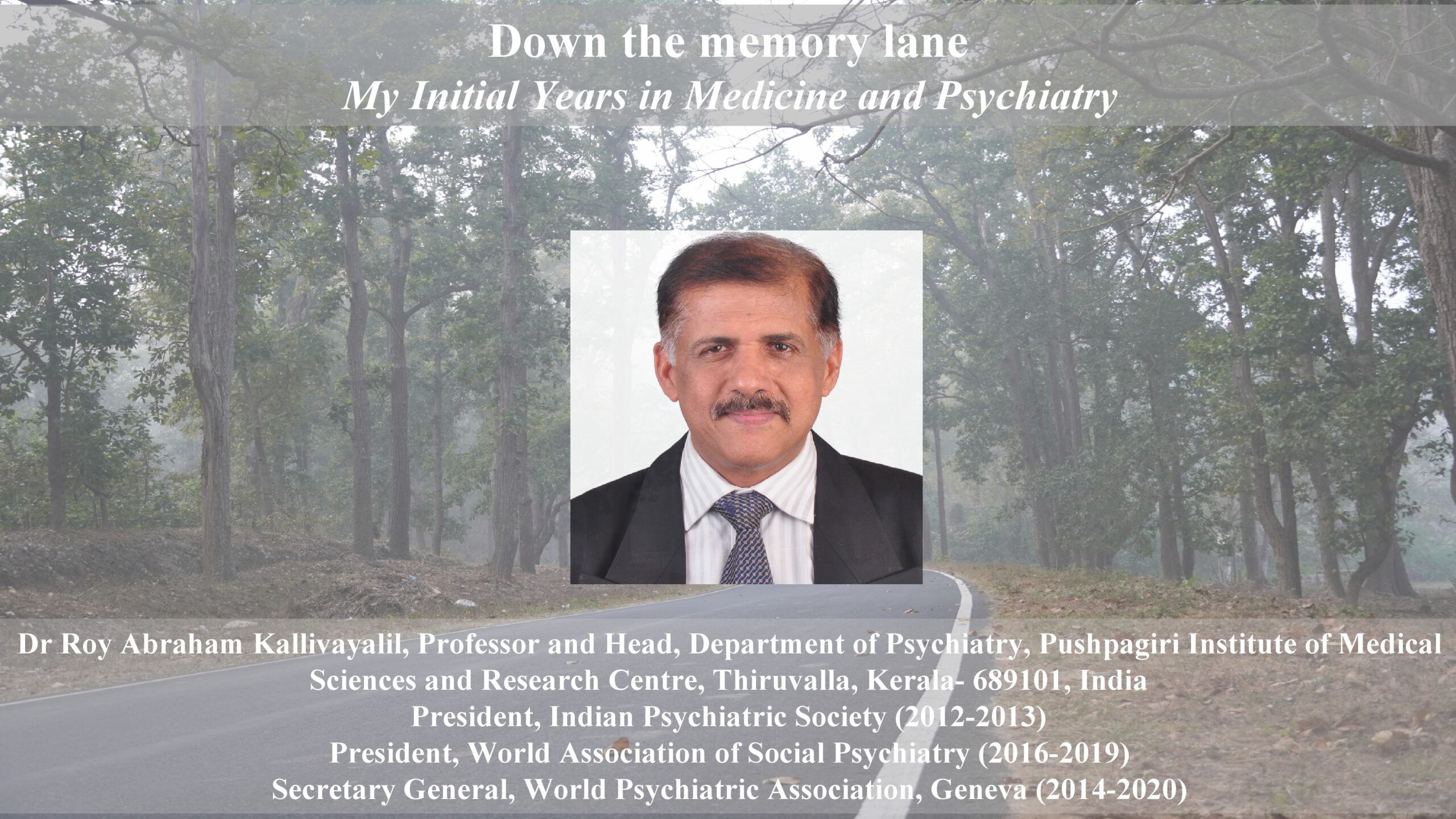Volume 10 Issue 9 September, 2019
As I began to write this article, it dawned on me how‘ going down memory lane’, is an important and universal diagnostic and therapeutic tool vital for the survival of every health care professional.
As a medical student in the 1970’s, I was taught the universal skill of‘ history taking’. This was to master the art of eliciting achronological history from a patient, to understand the course and progress of symptoms and thus to as certain the pathology or diagnosis. This was nothing but simply mastering the science of inquisitively questioning the patient to ‘god own the memory lane’ i.e.‘ can you recall when you first experienced the abdominal pain?’; ‘when did you first experience auditory hallucinations?’.
As I progressed in my training and practice, both as a Doctor and Psychiatrist, I experienced the need to take each patient down an antiquated memory path by specifically asking a question of every new patient, ‘how would you describe your childhood?’, ‘Do you recall any traumatic experiences during formative years?’. Such an exploration of subjective experiences of yester years helps understand a patient’s thinking and behaviour patterns and thus the potential to bring about corrective interventions.
In my training in the late 1980’s as a Psychotherapist, I can now in retrospect understand Freud’s incessant desire to understand the repressed memories of the unconscious. This is an art and a quest to lance the patient’s emotional abscess and thus release the pain of somatoform manifestation of underlying emotional distress. In such cases, it is an enforced opening of the gates of ‘let us go down the repressed memory lane’.
As I metamorphosed in the 1990’s from a Psychotherapist to a Cognitive Behaviour Therapist, I had to yet a gain delve into the patient’s early life experiences and thus understand the ‘core beliefs’ of the patient. This belief system is absolute and deep-rooted in the patient’s ‘memory lane’ of early life experiences or traumatic events of the past. Little does one realise the importance of ‘going down the memory lane’ for therapeutic gains and improving quality of life.
At the start of the new millennium, I began the practice of Eye Movement Desensitization and Reprocessing (EMDR). This is a therapeutic intervention, specifically used for the treatment of Post-Traumatic Stress Disorder. More recently, EMDR has been used for a host of other physical and mental health problems, including somato form pain, unresolved grief etc. The fundamental therapeutic intervention is to bring about an emotional and cognitive change by asking the patient to recall the ‘troubling memories of the past’ traumatic event from the ubiquitous memory lane. The therapist there after invokes cognitive interweaves for the troubling memories to reduce the emotional experience of pain and suffering provoked by ‘memories of the past trauma’.
On each occasion, when the traumatic memory of the past is processed, new memoriese merge, as the unconscious mind submerges it self into the repressed‘ memory lane’ and evokes new thoughts and memories that are processed until the distress is reduced.
It is thus apparent that ‘going down memory lane’ is a necessary skill and tool, both for physicians and psychiatrists. It is of tremendous diagnostic and the rapeutic importance. We are constantly taught to keep moving forward and not look back. However, to achieve the objective of a journey to travel to the end of the road, it is every so often important to revert the travel, so that the experiences of the past could be put to an advantage for the betterment of the travel for the future. Whether it is childhood to old age, love to grief, sorrow to joyfulness, compassionate nationalism to aggressive globalisation, or simple understanding of progression of pathology from then ascent growth of acelltoitscancerousstate,itwouldbeatone’sperilifoneweretochoosenottomeditateeverysooftenonthathugeexperientiallearningthatonecanachievefrom‘goingdownthememorylane’.
Dr.DarrylJBritto,MBBSMRCPsych,CHSM
ConsultantPsychiatrist
BrittoHealthcareLtd
WestYorkshire,UK

